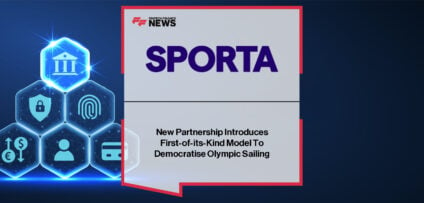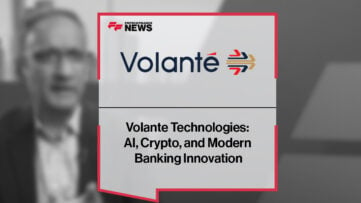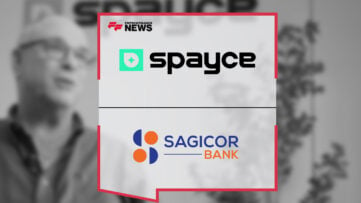Breaking News

Integrated Payments Checklist for VARs & ISVs
With payment technologies evolving at a rapid rate, and with consumers becoming more demanding in an increasingly digital world, merchants need to be capable of delivering a seamless payments experience, or risk being left behind.
Payment platforms need to be secure, fast, and scalable, but many businesses are working with ISVs (Independent Software Vendors) and VARs (value added resellers) to build ecommerce platforms and apps that do not take into consideration how challenging building a robust payment system can be. This is where integrated payments can help, by providing a platform that works on a principle of one-to-many, offering a frictionless solution that can be implemented and scaled quickly.
In addition, the bespoke nature of integrated payment solutions allows them to be easily paired with other software products, including customer relationship management (CRM), accounting software, and marketing platforms, allowing merchants to get a better grasp on business operations while saving time and money, and reducing PCI compliance issues.
Rather than having to build payments infrastructure from the ground up, ISVs/VARs can partner with a PSP that offers a simple method of integrating payments into their app or website, freeing up time and resources that can then be focused into optimising other areas. There are many different integrated payment platforms to choose from, but ISVs/VARs would be wise to conduct in depth research before selecting a partner, as not all platforms will have the same functionality.
Wide range of payment methods
Users’ preferred method of payment varies depending on demographic, location, and even device. To reduce the risk of basket abandonment, merchants need to be able to accept a wide range of payment methods, and be ready to add new ones as demand increases. ISVs/VARs that do not utilise an integrated payments platform will often have to add new payment methods on a piecemeal basis, which is time consuming and costly. This outdated approach makes it difficult to keep up with emerging payment trends, potentially resulting in a loss of revenue.
Considerations to make when selecting an integrated payments solution should include features such as mobile payments, the ability to process payments from digital wallets, and international payments acceptance with the capacity to process multiple currencies at an affordable cost. By offering a broad range of payments methods, ISVs/VARs are able to provide added value, which in turn allows them to onboard a larger number and wider variety of merchants.
Feature-rich payment gateway
The payment gateway performs a simple, yet critical function – validating a customer’s credit or debit card details securely, and making sure funds are available for payment to the merchant. However, by choosing to partner with a payment provider that is unable to offer flexible and scalable solutions as part of the payment gateway – including accepting alternative payment methods, cross border payment functionality, and real-time reporting – ISVs/VARs will find that the payments process becomes disjointed and difficult to scale as more functionality is required over time.
Therefore, when reviewing prospective PSPs to deliver an integrated payments solution, ISVs/VARs should ensure the platform is robust but flexible, with the ability for new features and functions can be added as and when required.
Speedy merchant onboarding
Once a ISV/VAR has a portfolio of merchant clients, making the onboarding process as fast and efficient as possible is critical. The traditional merchant onboarding process is slow and prone to delays due to the manual nature of the data entry and compliance checks, with issues sometimes taking weeks to be resolved. In addition, many payment models have a separate onboarding process, with multiple vendors handling the underwriting process, which can further complicate things, making the entire onboarding process frustrating and resource-intensive.
Integrated payments resolve these issues by automating every part of the merchant onboarding process. This includes underwriting, application processing, risk underwriting and account creation, meaning that merchants can begin accepting payments immediately.
The bottom line is that payments need to be frictionless, and an integrated payments platform delivered by a PSP with sector experience, can deliver this. As payment technology continues to evolve, and as borders become less of a barrier to trade, there are many opportunities on which ISVs/VARs can capitalise, providing they partner with a PSP that is capable of delivering not only flexible payment options and a smooth onboarding process, but also a track record of delivering high levels of support services, platform customisation, and omni-channel functionality. In a world where merchants strive to future proof themselves against their customers’ ever-changing payment habits – as well as keeping up with the competition – working with a ISV/VAR who is able to help them choose the right integrated payment processing solution is more important than ever.
Written by Carla Erlick, Paysafe.
- DIFC’s Dubai FinTech Summit Expands Globally with Pakistan Digital Authority Read more
- GoldenPeaks Capital Secures Largest PPA Deal in Hungary With Hankook Read more
- Volante Technologies: AI, Crypto, and Modern Banking Innovation Read more
- Payment Spayce and Sagicor Bank: Innovating Fintech for the Caribbean Market Read more
- Top Companies Supporting Former Workers with German Pension Refunds Read more












